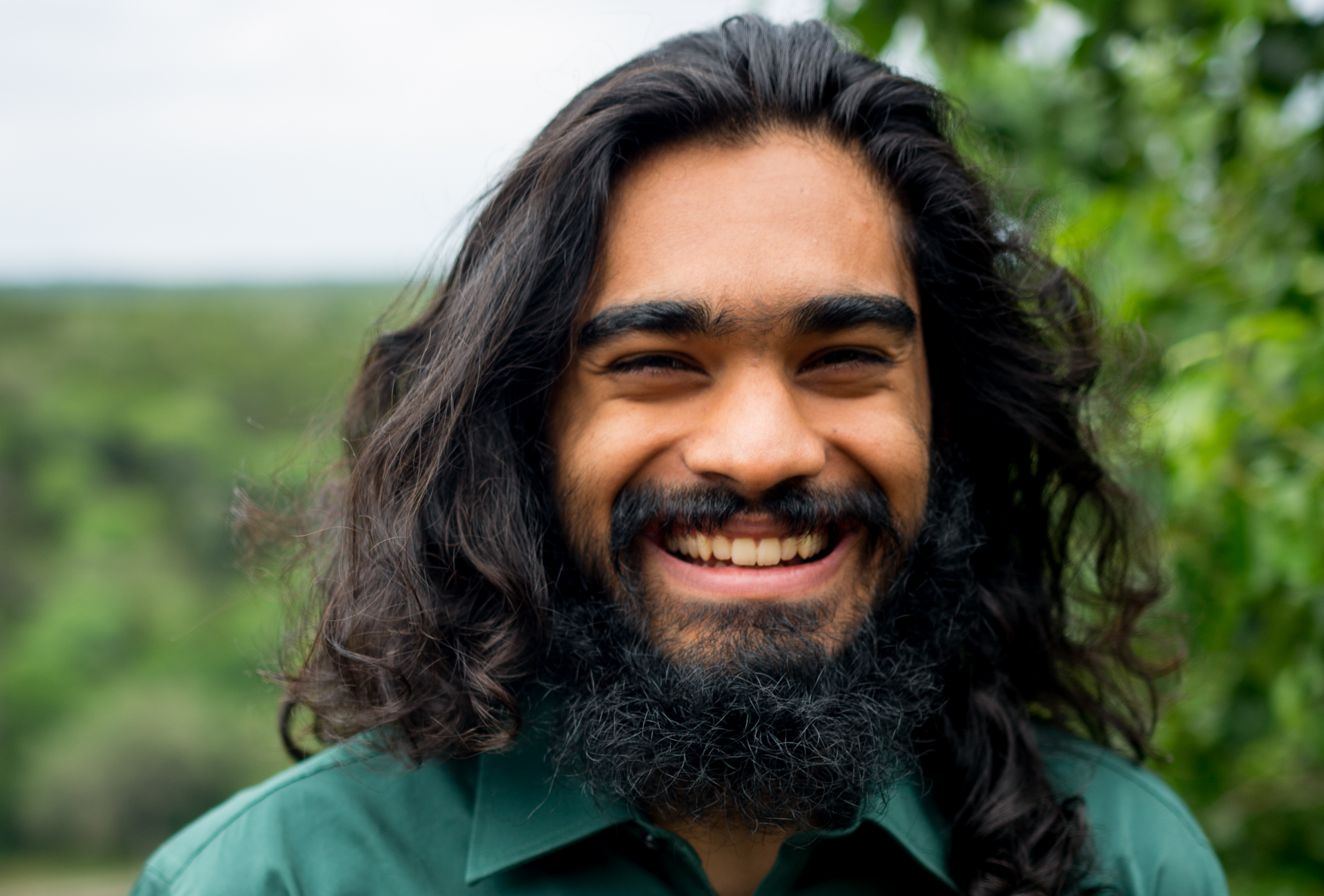Akash Thakkar is an economics and Plan II honors senior from Austin, Texas. He was named a 2021 Dean’s Distinguished Graduate, one of only 12 liberal arts students honored each year. In this Q&A, read more about how his passion for economics research came to be and how he’s implementing it in the real world through a charitable giving app.
Can you tell us about your project, GiveASip, and what inspired you to create it?
In Summer 2020, with the world seemingly on fire, I began trying to donate the price of a cup of coffee every day. One morning, while in the shower (where great ideas are often born), I realized that this idea has potential to be an actual app and web-based platform that everyday people from all over the world could use to help habituate donating.
This eventually bloomed into an idea called GiveASip that seeks to make pocket-sized donating as simple and routine as ordering a cup of coffee. I presented the project proposal at the Reimagining Fundraising Global Open Innovation Challenge and was awarded the People’s Choice Award last fall. This past spring, I worked on the project through the Forty Acres Founders Pre-Accelerator Program. The next step for this project is to launch a website version of GiveASip this summer!
Why did you choose the field of economics?
I wasn’t actually signed up to be an economics major coming into UT, but I decided to explore the field more after taking an economics class in my senior year of high school. The class, taught by the phenomenal Bill Blaine, is what first drew me to economics; but it was the development research aspect that made me stay.
Accidentally, I stumbled upon the world of economics research during my freshman year at UT. While waiting by the elevator in the economics building, my eyes scanned the adjacent bulletin board that listed the upcoming graduate seminars. Drawn by my curiosity, I jotted down the dates and times for a couple of the seminars and I decided to show up. Armed only with my wits and AP credits, I found myself surrounded by professors and Ph.D. students at these seminars almost every week. Seeing contemporary researchers presenting their work at different stages offered me an unfettered exposure to the academic process and to what modern economic research looked like. Almost immediately, I realized that economic and policy research would become the medium through which I would engage with issues of development and societal improvement.
How has your economics research prepared you?
I’ve been fortunate enough to have researched under Professor Leigh Linden, who is a development economist here at UT. My work with him ran the gamut from sifting through boxes of raw survey responses to conducting data analysis in STATA and producing tables for a working paper. Both of the projects I worked on, the Higher Achievement Program and the Burkinabé Response to Improve Girls’ Chances to Succeed (BRIGHT) Program, are large-scale multi-year multi-million dollar programs that sought to improve educational outcomes. Working on these extensive development projects exposed me to the contemporary capabilities of development research.
My own independent research projects also exposed me to the various stages of the research process; from coming up with a research idea and reviewing the related literature, to building the data and conducting the analysis, to actually writing the paper and presenting the findings.
What’s the most interesting thing you’ve learned while conducting research?
How research can be used to evaluate the effects of specific policies and interventions. There are various econometric and statistical techniques that allow us to do so under particular assumptions.
What are your professional goals?
My long-term goal is to research topics in development and humanitarianism, but I’m not entirely sure what that will look like. For now, I’ll be starting as a predoctoral research associate under Dr. Dave Donaldson at MIT this fall. After working under him, I plan on pursuing a Ph.D. in economics or public policy to formally train as a researcher and social scientist equipped to tackle big questions in complex contexts, particularly related to crisis response and management.
